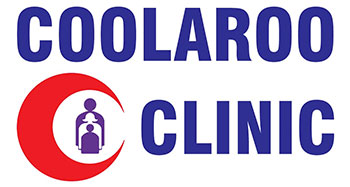When you hear the term ‘gut health’, the first thought that comes to mind for most people is indigestion and bloating. But did you know that recent studies have identified our gut to have an incredible amount of control on our overall health? A healthy gut means having a good balance of microbes or bacteria in your gastrointestinal tract that contributes to important body functions such as metabolism regulation, production of vitamins, detoxification, and many more. As such, having a healthy gut can enhance your immune system, combat obesity and even elevate depression symptoms.
In this article, we share some signs that would help you identify poor gut health.
-
Digestive issues
Irritable bowel syndrome (IBS), constipation, diarrhoea, heartburn and bloating are the hallmark signs of gut dysfunction. A balanced gut typically has lesser difficulties processing food and eliminating waste. However, if you have symptoms indicating otherwise, it could have been caused by irritants present in your meal (E.g., artificial sweeteners, fried foods, alcohol, caffeine, dairy, gluten, carbonation). A simple way to address this concern is by adding prebiotic and probiotic food or supplements to your daily diet to improve your gut microbiome and restore your gut health.
-
Sugar cravings
Gut microbes are known to secrete proteins that imitate hunger regulation hormones. This process increases the appetite for sugary food. However, too much sugar or processed foods can lead to an abundance of “bad” bacteria in the gut and dysbiosis, a condition when gut bacteria becomes imbalanced. This imbalance acts as a never-ending cycle, causing a higher increase in sugar cravings and as a result, further gut damage. High-fructose corn syrup in particular, has been associated with increased inflammation in the body, which can lead to chronic conditions like cancer and diabetes.
-
Bad breath
Chronic bad breath, called halitosis, is caused by an excessive amount of H. pylori bacteria that takes up residence in your gastrointestinal tract. Similarly, constipation can contribute to bad breath as anything you consume while being unable to pass bowel movement remains inside the digestive tract, and continues to ferment, thus releasing foul odours. Besides bad breath, this bacterium is also associated with more serious illnesses such as stomach cancer and ulcer disease. Some research suggests taking probiotics, particularly ones in the lactobacilli species, to treat and even prevent halitosis.
-
Food intolerance
Unlike food allergies, which are caused by the body’s immune system, food intolerance is the result of difficulty digesting certain foods due to poor quality of gut bacteria. Symptoms of food intolerance include bloating, gas, diarrhoea, abdominal pain, and nausea following the consumption of a trigger food. Too many people often ignore these signs or when treated, tend to rely on over-the-counter medications for a quick fix. For lasting and ideal results, make sure to remove the suspected food out from your diet completely.
-
Moodiness, anxiety and depression
While mood disorders are not solely regulated by gut health, it is however, a significantly contributing factor. Your gut microbiome plays a vital role in your resultant mental health, which includes the way you respond to stress through neural communication channels that exist in a pathway dubbed as the “gut-brain axis”. When thrown off its course, it can contribute to things like anxiousness and mood imbalance. So, if you find yourself experiencing a sudden swing in mood or heightened anxiety, try making changes to your diet and lifestyle.
-
Skin breakouts and irritation
Wondering why you still get skin breakouts or irritations even as an adult? The answer could likely reside in your gut health. Many inflammatory skin conditions including acne, rosacea and eczema psoriasis have been directly linked to disruptions in gut microbes. Your skin has a unique microbiome of its own, which is influenced by the balance of bacteria on your skin. Naturally, an imbalance in your gut will cause an imbalance in your skin, hence leading to an array of skin health needs depending on the individual. To keep your skin homeostasis in optimal state, add foods that contain helpful bacteria from the fermentation process such as plain yogurt, kefir, sauerkraut, kombucha and kimchi.
At Coolaroo Clinic, we have skilled and experienced GPs and pathologists who are ready to address any concerns that you may have about your gut health. We also provide nutrition consultations specialising in areas like weight management and many others to promote peak gut functioning. Get in touch with us for any enquiries and book an appointment today!

